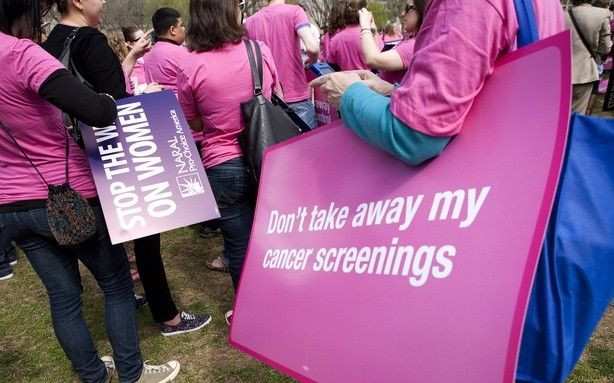Komen Continues Funding, but Breast Cancer Screening Falls Short

Although the Susan G. Komen for the Cure Foundation announced that they would continue to fund Planned Parenthood centers, there might be a different problem. The Planned Parenthood resources make screening and tests more readily available, but the number of Americans being screened is below the national target, according to a new federal study.
The Center for Disease Control and Prevention's latest report, released at the end of January, found that only 72.4 percent of women between the ages of 50 and 74 get screened for breast cancer by mammography every two years. This is about 10 percent lower than the national goal, which is 81.1 percent.
We need to spread the word as far and wide as possible that numerous scientific studies tell us screening women ages 50 and above definitely saves lives, said Otis W. Brawley, chief medical officer of the American Cancer Society.
The New York Times attributed this issue partially to the recession, causing workers to be laid off and health benefits to be cut.
Their plight underscores the urgent need to retain the health care reform that will expand proven screening and prevention programs at no charge to patients, The New York Times wrote, referring to the survey results as discouraging.
In Utah, however, the state's Senate views the disease as a serious matter. A bill was just passed this week with the goal of promoting breast cancer awareness, The Daily Herald reported. The bill would encourage health facilities that offer screening services to notify patients with so-called 'dense' breast issues to get tested for the disease, since it is more difficult to detect cancer in denser tissue.
These bills are well-intentioned, because women should know the limitations of mammography, said Brawley.
Some members of the Senate criticized the bill, saying that promoting health practices is important but shouldn't be enforced by law.
I agree that this is something very important, Senate President Michael Waddoups said to the AP. This is probably not the right place to do this.
However, additional testing might be unwarranted.
The issue of breast density is very complicated, he said. A lot of experts are concerned that efforts to legislate a medical issue might lead to unnecessary testing, a concern that I share.
In the wake of Komen's decision to continue funding, Planned Parenthood received a flow of donations from supporters, which would be used to expand the service's breast health services, the AP reported. The facility already provides nearly 750,000 breast exams each year.
Mammograms can miss some cancers. But they are a valuable tool, and have decreased suffering and death from breast cancer, said Brawley. Doing breast self-exam regularly is one way for women to know how their breasts normally look and feel and to notice any changes, but the goal really is to be aware of any breast changes.
To learn more about breast cancer or to find out where you can get help, visit www.cancer.org.
© Copyright IBTimes 2024. All rights reserved.






















